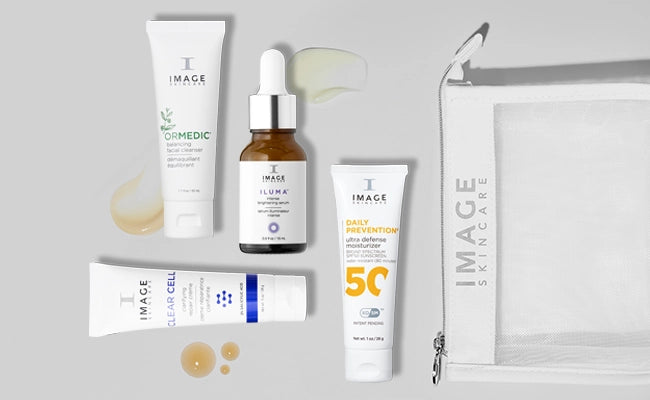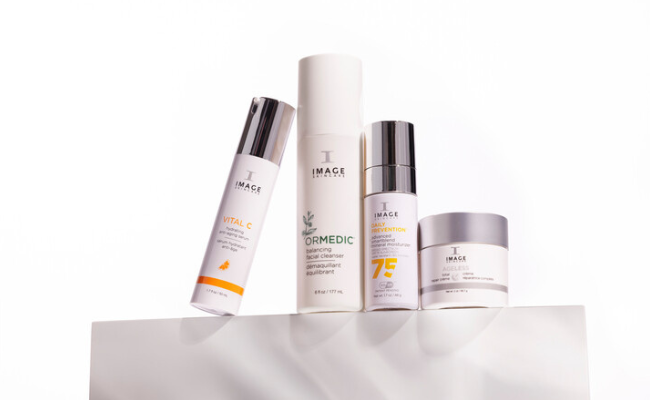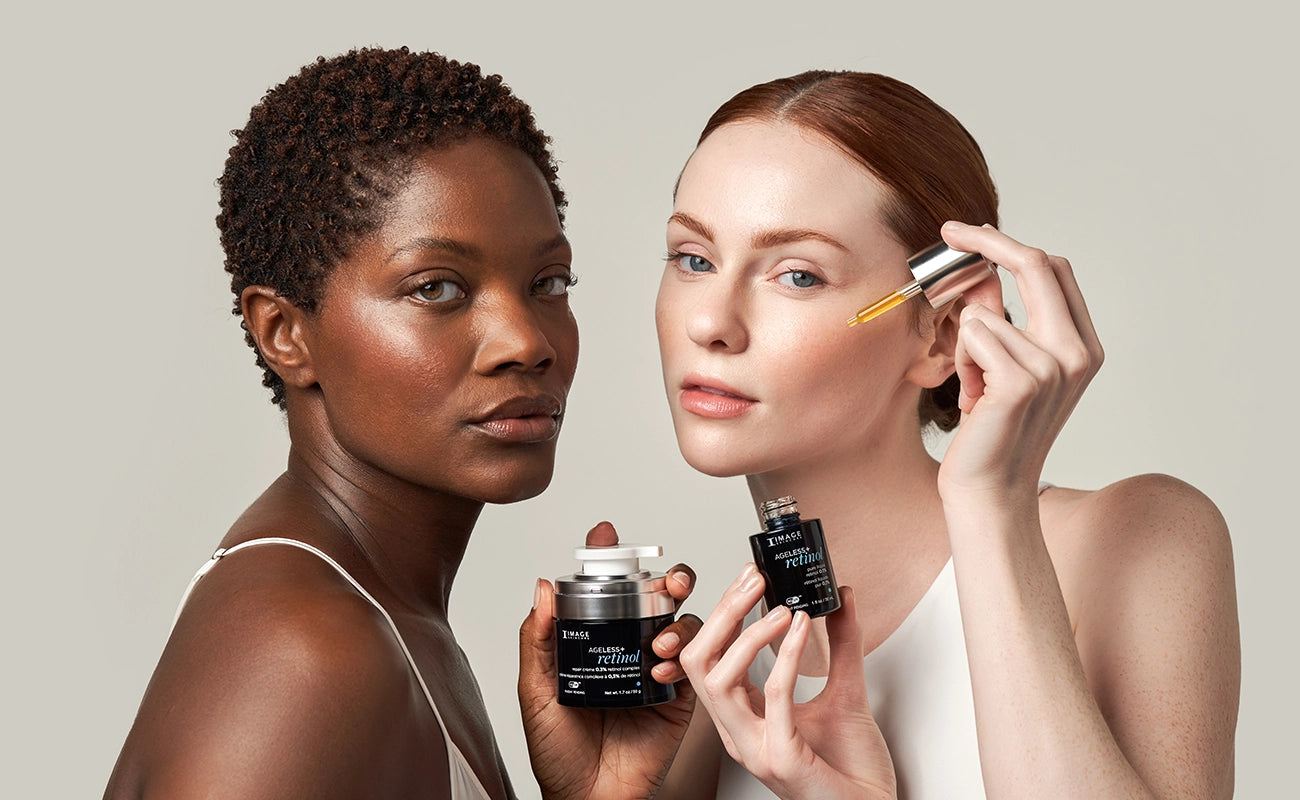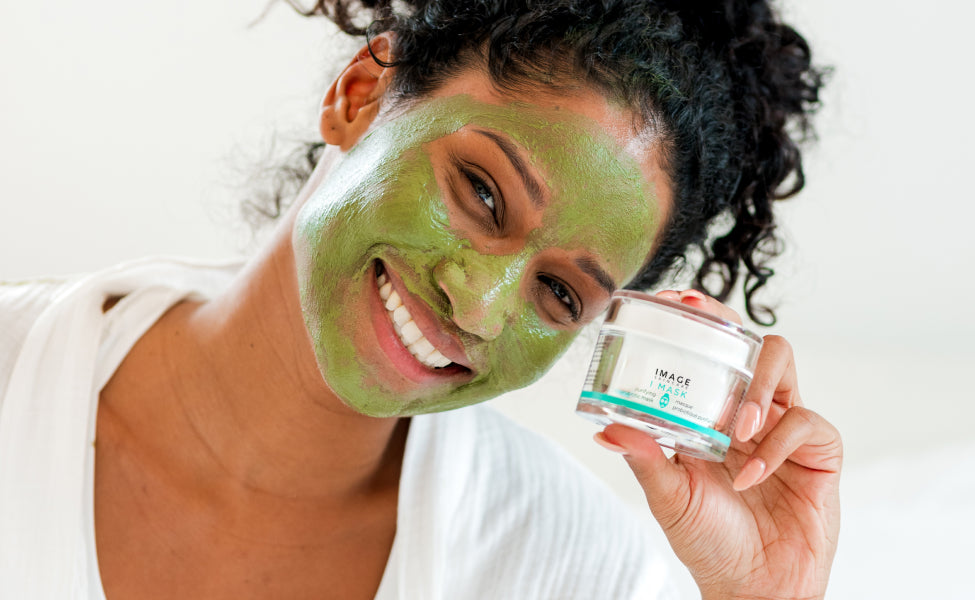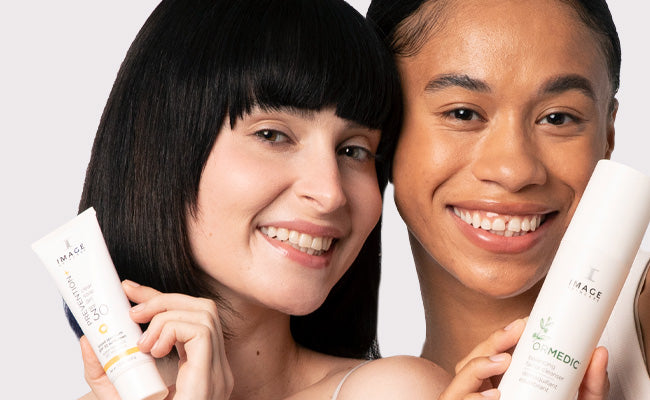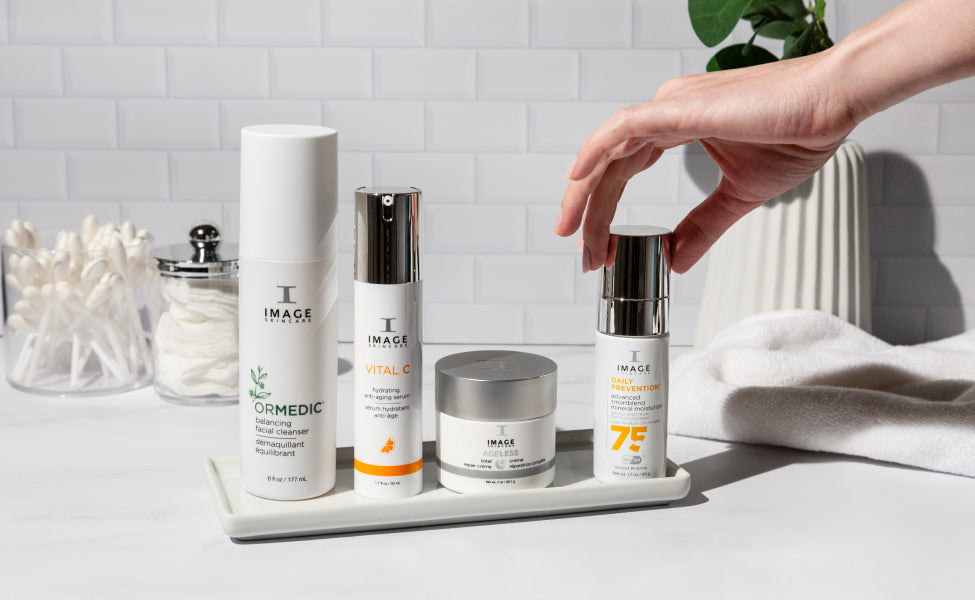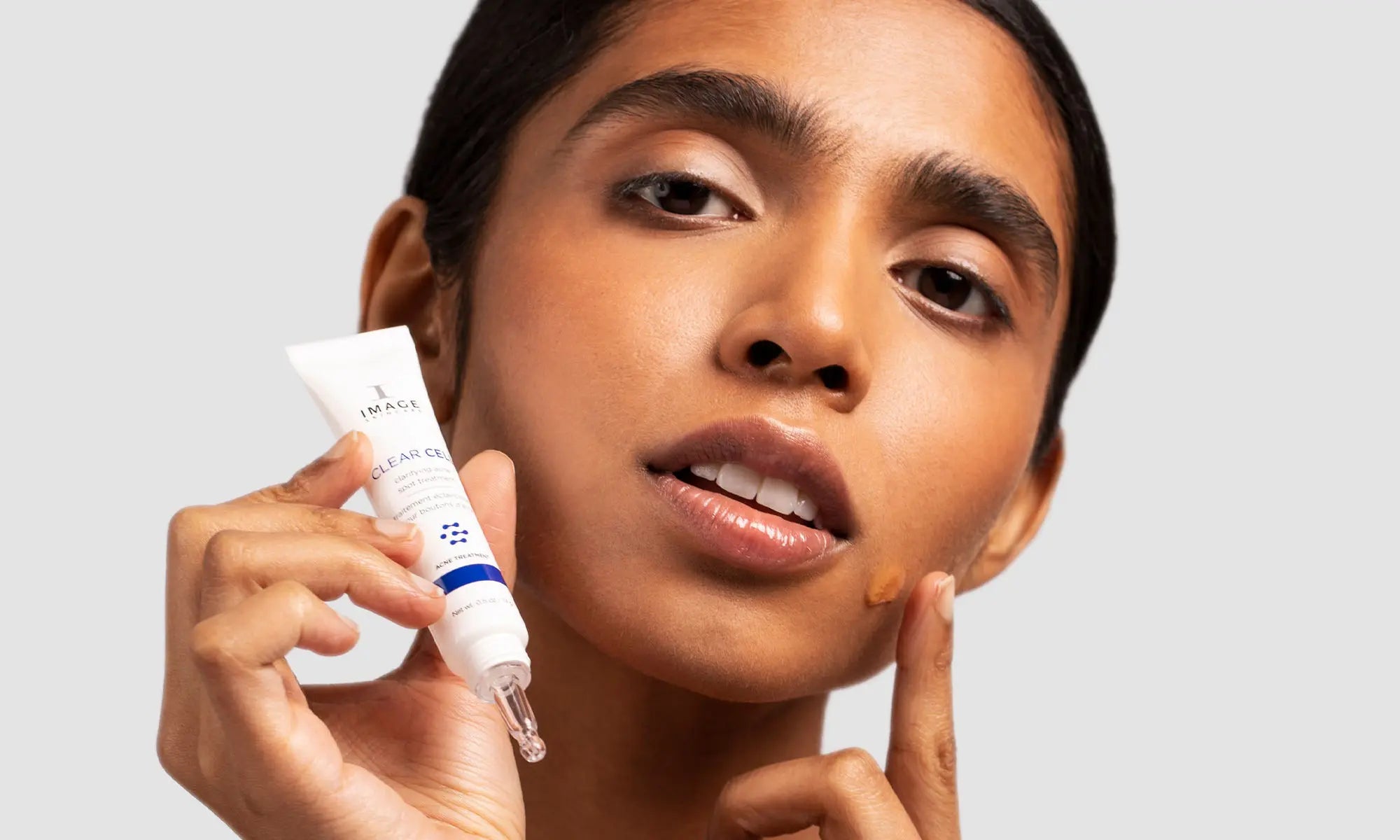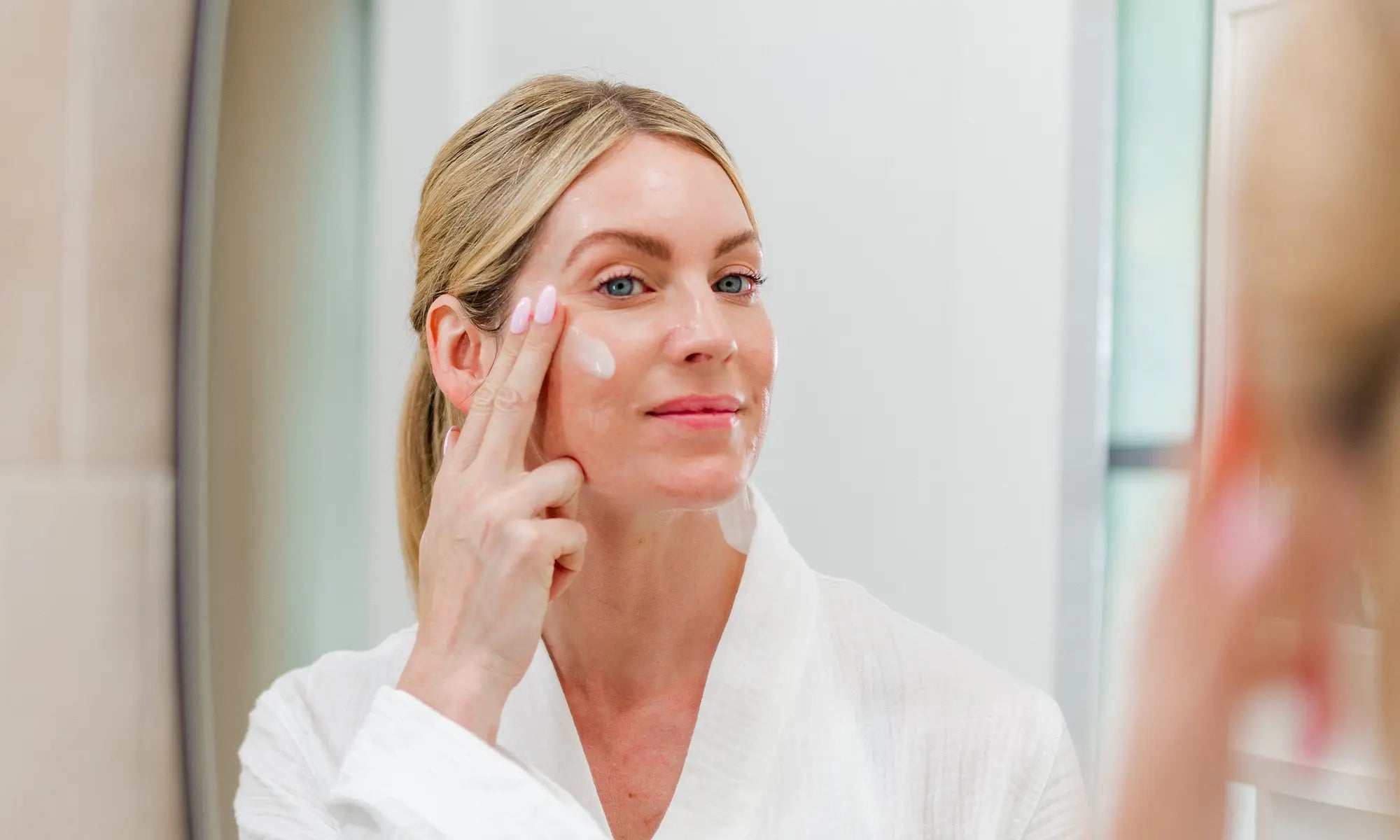
What Is My Skin Type?
Quick Answer: Your skin type is determined by how much oil your skin produces, its sensitivity level, and its overall condition. The five main skin types are normal, oily, dry, combination, and sensitive skin. You can identify your skin type through simple at-home tests like the bare-faced test or blotting sheet method.
Understanding your skin type is the foundation of effective skincare. Whether you're dealing with unexpected breakouts, persistent dryness, or just can't seem to find products that work, knowing how to identify your skin type is the first step toward achieving your healthiest complexion.
Key Takeaway: Your skin type isn't set in stone—it can change with age, climate, hormones, and lifestyle. That's why learning to check your skin type regularly ensures you're consistently giving it what it needs for optimal health.

Why Understanding Your Skin Type Matters
The Problem: Most people use skincare products without knowing their actual skin type, leading to ineffective routines and potential skin damage.
The Solution: Knowing your skin type isn't just skincare 101—it's the key to avoiding common mistakes that can damage your skin barrier and worsen existing concerns. Understanding whether you have oily, dry, combination, sensitive, or normal skin, can determine which formulations work with your skin, not against it.
Common Mistakes to Avoid:
- Treating symptoms rather than addressing root skin type needs
- Following trends that may be unsuitable for your unique skin
- Using heavy, oil-based moisturizers on oily skin (leads to clogged pores)
- Using harsh, stripping cleansers on dry skin (increases sensitivity and dehydration)
Expert Insight: Professional skin analysis reveals that most people misidentify their skin type, often treating symptoms rather than addressing their skin's actual needs. This is why understanding the characteristics of each skin type and how to identify your skin type accurately is so important.
The 5 Main Skin Types (Complete Breakdown)
1. Normal Skin
Characteristics: Well-balanced, minimal concerns, not overly oily or dry, rarely sensitive.
Main Care Tip: Focus on maintenance and protection rather than treatment.
Best Products: Focus on supporting your skin's natural balance with gentle, effective products like the ORMEDIC balancing biopeptide crème, which contains organic plant oils and hyaluronic acid to support ongoing skin health.

2. Oily Skin
Characteristics: Shiny appearance, enlarged pores, prone to breakouts, excess sebum production.
Main Care Tip: Control oil without over-drying to prevent rebound oil production.
Best Products: Our CLEAR CELL products manage excess sebum and prevent breakouts while keeping skin balanced.
3. Dry Skin
Characteristics: Tight feeling, flaky or rough texture, dull appearance, prone to irritation.
Main Care Tip: Prioritize intense hydration and barrier repair.
Best Products: Intense hydration is crucial—look for rich creams and serums that restore your skin's natural moisture barrier. Because this skin type lacks adequate moisture and oil, it's vulnerable to irritation and premature aging.
4. Combination Skin
Characteristics: Oily T-zone (forehead, nose, chin), dry or normal cheeks, mixed concerns.
Main Care Tip: Use balanced products that address multiple needs without over-treating.
Best Products: Combination skin is oily in some areas (typically the T-zone) and dry or normal in others (usually the cheeks). This skin type requires a balanced approach since you're essentially caring for multiple skin types on one face. Gentle, lightweight products that address both concerns without over-treating any area work best.
5. Sensitive Skin
Characteristics: Easily irritated, reactions to new products, stinging or burning sensations, redness.
Main Care Tip: Choose gentle, fragrance-free formulations and always patch test.
Best Products: Sensitive skin is easily irritated and may react to new products with stinging, burning, or flushing. This skin type requires gentle, fragrance-free formulations with minimal ingredients. Always patch test new products and introduce them gradually to avoid reactions.
How to Identify Your Skin Type (Step-by-Step Methods)

Method 1: The Bare-Faced Test (Most Accurate)
- Cleanse your face with a gentle cleanser
- Pat dry and don't apply any products
- Wait 30 minutes
- Examine your skin:
- Tight feeling = Dry skin
- Shine on T-zone = Oily or combination skin
- Comfortable with minimal shine = Normal skin
- Any irritation or redness = Sensitive skin
Method 2: The Blotting Sheet Test
- Press a clean blotting sheet against different areas of your face
- Check oil absorption:
- Little to no oil = Dry skin
- Oil from entire face = Oily skin
- Oil only from T-zone = Combination skin
Method 3: Visual and Texture Analysis Look for these common clues:
- Enlarged pores = typically oily skin
- Flaking or roughness = dry skin
- Redness or irritation = sensitive skin
- Even tone and smooth texture = normal skin
Pro Tip: How can I check my skin type most accurately? Combine multiple methods and observe your skin over several days for the most reliable assessment.
Best Practices by Skin Type (Product Recommendations)
Normal Skin Care Routine
Priority: Maintain balance with gentle cleansers, lightweight moisturizers, and regular exfoliation. Look for products with hyaluronic acid and peptides to preserve your skin's health. The VITAL C anti-aging hydrating serum is perfect for maintaining radiant, healthy skin while providing anti-aging benefits.

Oily Skin Care Routine
Priority: Prioritize oil control without over-drying. Choose gel-based or foam cleansers, lightweight serums, and oil-free moisturizers. Key ingredients include salicylic acid, niacinamide, and benzoyl peroxide.
Dry Skin Care Routine
Priority: Focus on intense hydration and barrier repair. Cream-based cleansers, rich moisturizers, and hydrating serums are essential. Look for ceramides, glycerin, and botanical oils to restore moisture. Consider adding a high-performance serum like the IMAGE MD® restoring power-C serum for plumping and vitamin C benefits.

Combination Skin Care Routine
Priority: Use versatile products that address multiple concerns. Gentle gel cleansers, such as the ORMEDIC balancing facial cleanser, lightweight moisturizers, and targeted treatments for specific areas work best.

Sensitive Skin Care Routine
Priority: Choose fragrance-free, hypoallergenic products with minimal ingredients. Avoid harsh actives and always patch test new products.
Every routine should include a broad-spectrum sunscreen from DAILY PREVENTION, including eight formulas to choose from depending on your skin type and concerns.
When to See a Professional (Expert Consultation Guide)
Signs You Need Professional Help:
Persistent skin concerns despite proper home care
Uncertainty about your skin type after trying multiple assessment methods
Skin reactions to multiple products
Desire for advanced treatments or personalized regimens
While at-home skin analysis is helpful, a professional consultation can offer deeper insights into your skin's needs.
Benefits of Professional Analysis:
Advanced diagnostic tools and techniques
Customized treatment plans
Professional-grade products and procedures
Ongoing monitoring and adjustments
Professional facial treatments for different skin types can address specific concerns more effectively than at-home care alone. Find an IMAGE skincare professional near you to book a treatment.
Listen to Your Skin (Adapting Over Time)
Important Reality: Your skin type can change throughout your life due to hormones, climate, age, and lifestyle factors. What worked in your twenties might not be suitable in your forties.
Signs Your Skin Type May Be Changing:
Increased oiliness or dryness
New sensitivity to previously tolerated products
Changes in texture or appearance
Different reactions to weather or environmental factors
Monitoring Tips:
Reassess your skin type seasonally
Pay attention to how your skin responds to products
Note any changes during hormonal fluctuations
Adjust your routine based on life changes (new climate, age, stress levels)
Remember, achieving 100% clear skin is a journey that requires patience, consistency, and the right products for your specific needs. Understanding that your skin type can evolve helps you stay adaptable and responsive to your skin's changing needs.
Take the Next Step (Get Your Personalized Routine)
Summary: Understanding your skin type is the foundation of effective skincare. Whether you have normal, oily, dry, combination, or sensitive skin, the key is choosing products and routines that work with your skin's natural characteristics.
Action Steps:
- Use the assessment methods above to identify your skin type
- Choose products specifically formulated for your skin type
- Monitor your skin's response and adjust as needed
- Consider professional consultation for persistent concerns
Now that you know your skin type, build a routine that works for it. Take our Skin Quiz for a tailored routine made just for you. Our personalized recommendations will help you choose the perfect products for your skin's unique needs.
Final Takeaway: Don't let uncertainty about your skin type hold you back from achieving your best complexion. With the right knowledge and products, every skin type can be beautiful and healthy.
About IMAGE Skincare: IMAGE Skincare is a physician-founded skincare brand dedicated to creating effective, science-backed products for all skin types. Our products are developed with dermatologists and estheticians to ensure the best results for your unique skin needs.

